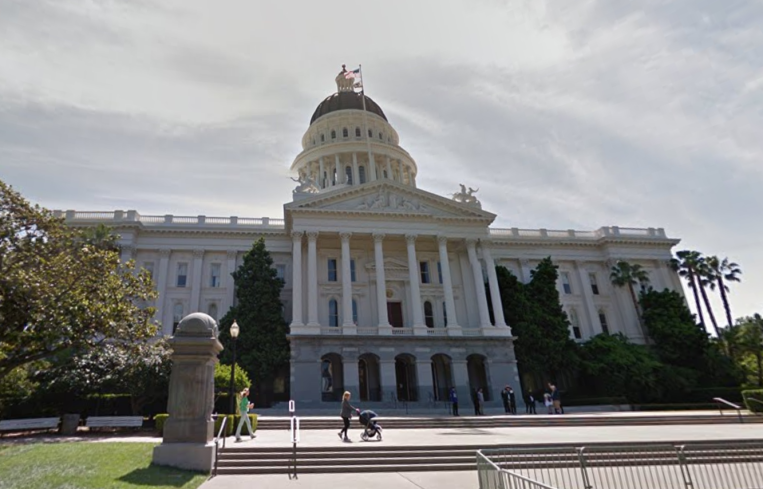California Apartment Landlords Press for Statewide Relief and Rental Aid
Advocates for rental housing managers and landlords in Los Angeles and across California urged state lawmakers to create broader policy relief for both renters and property owners.
By Greg Cornfield May 1, 2020 3:35 pm
reprints
Rent is due for most California apartment dwellers today, and their landlords are expecting to see even fewer payments than they saw in April as the economy remains mostly shutdown.
On Thursday, advocates for rental housing managers and landlords in Los Angeles and across California urged state lawmakers to create broader policy relief for both renters and property owners. The groups, including the California Rental Housing Association (CalRHA) and the Apartment Association of Greater L.A., proposed a statewide rental assistance program, which would offer government assistance to renters that have been negatively affected by the coronavirus.
Landlords throughout the state are facing serious financial strain due to the corresponding stay-at-home orders, the associations said, and very few small property owners have more than one month of capital reserved to cover mortgage expenses.
“Just like renters, many housing providers live month-to-month and have few reserves to survive an emergency like the one we’re in,” said Daniel M. Yukelson, president of the Apartment Association of Greater L.A. “Just because someone has equity in a property doesn’t mean they have liquidity.”
In a virtual press conference, Sid Lakireddy, president of CalRHA, said housing is a $500-billion industry in California, and if it collapses there would be a “catastrophic” cascading effect.
The state has allowed jurisdictions to put moratoriums on residential evictions during the state of emergency. L.A. officials enacted both a moratorium on evictions for nonpayment of rent related to coronavirus and also implemented a freeze on rent increases for all of its rent-stabilized units.
L.A.’s ordinance halting evictions does not require tenants to provide notice or documentation if they are unable to pay rent due to coronavirus. But the governor’s order indicates a tenant must notify their landlord in writing up to seven days after rent is due. Tenants in L.A. will have 12 months after the end of the emergency to pay back any missed rent payments, and L.A. landlords cannot charge interest or late fees.
CalRHA is instead pushing for a statewide renter assistance program for rent deferral and repayment plans. It would include up to three months of rental assistance for renters who can demonstrate a loss of income due to coronavirus. The groups suggest the program would be federally funded through the CARES Act or through available housing funds and state reserves.
“If [renters] can prove they’ve been affected by COVID, either physically or economically, the state would help offset that rent — maybe not 100 percent, but to some degree — so rental property owners can continue to operate their businesses and continue to pay the people they pay to keep homes safe and habitable,” Lakireddy said.
Yukelson represents landlords with properties in L.A., San Bernardino and Ventura counties, and he said it’s difficult for them to figure out differing emergency regulations implemented by individual cities. The landlords are calling for the statewide rental program to supersede all the individual ordinances for one framework. That includes more broad measures like reducing the repayment plan period to six months.
The landlord groups also are calling on the state to defer or delay property taxes; create a tax credit system that incentivizes owners to provide rental assistance to tenants; and create a framework that allows landlords to receive mortgage payment relief when they provide rental relief.
Yukelson said the current emergency orders and government regulations that have been enacted since the outbreak started “emboldened renters to not pay rent whether they can afford to or not.”
“Many have chosen not to pay and owners cannot do anything about it,” he said.
Yukelson suspects lawmakers will continue to expand repayment plans for deferred rent in favor of renters, and extend the period from 12 months to up to two years.
“Even greater restrictions will be placed on evictions and we’ll, unfortunately, see an increase in mortgage defaults,” he said. “There will be no one left who will want to invest in this business. The membership in our association is already a leaky bucket because there is so much risk involved. It’s far easier to put money in rental property outside of California or stick it in a 401k plan than to have to take late-night calls to fix a stopped up sink.”
The groups also oppose Assembly Bill 828 by Assemblyman Phil Ting, and said it would exacerbate the economic stress on housing providers. The bill would allow the courts to force rental property owners in the state to reduce rents by 25 percent for the next year if the tenant is affected by the outbreak.
“That would be catastrophic not just to our industry but to the state as a whole and the economy as a whole,” Lakireddy said. “No knee-jerk reaction solutions.”
The Assembly is back in Sacramento next week. But there is no schedule for bills, including AB 828.



